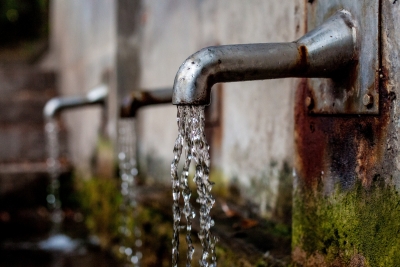
United Nations, March 25 (IANS) As the conclusion of the three-day UN 2023 Water Conference, the Food and Agriculture Organization (FAO) reaffirmed its commitment to actively follow up on agreed actions included in the new Water Action Agenda.
“At the critical point of the 2030 Agenda, all sectors must work together in an efficient, effective and coherent manner to co-create, co-design and co-advocate solutions, and to accelerate action on data and information, innovation, finance, capacity development and governance to implement the Water Action Decade,” FAO Director-General Qu Dongyu said while moderating a high-level dialogue at the UN headquarters in New York.
The Water Action Decade (2018-2028) was created by the UN General Assembly to complement the process of the 2030 Agenda for Sustainable Development, moving away from silos and integrating efforts at the global level, reports Xinhua news agency.
The meeting moderated by Qu aimed to take stock of the advancement in the objectives for the decade formulated by the UN secretary-general’s plan.
More than 20 member states also took the floor to deliver national statements underscoring how water is critical for sustainable development and the eradication of poverty and hunger.
For Qu, the 2023 UN Water Conference provided great opportunities to discuss, collaborate and collectively identify solutions for efficient and effective action to realise water-related goals and targets to achieve the 2030 Agenda.
“Through our new FAO Water Journey we are raising attention on the crucial importance of water for agriculture and food security, as well as to all other SDGs,” he emphasised.
The conference was a call to action for every single person on the planet to accelerate change to solve the water and sanitation crisis around the world, he added.
Currently, 2.3 billion people live in water-stressed countries, of which more than 733 million people — approximately 10 percent of the global population — live in countries with high and critical water stress.
Water scarcity, drought, floods, pollution and other impacts of the crisis are key challenges to sustainable agriculture and rural development.
During the three-day meeting, FAO provided support to two high-level interactive dialogues, organised a side event on national water roadmaps, and co-partnered three special events and over 20 side events.
The Water Action Agenda that emerged from the conference is comprised of voluntary commitments, some of which are transformative in nature.
FAO has engaged in seven commitments, in the framework of the Agenda, which include the initiative on the National Water Roadmaps towards the 2030 Agenda, a tool to foster collective action at the national level to improve cross-sectorial coordination on water management and governance in support of the Sustainable Development Goals.
Water is essential for food production, enabling the production of over 95 per cent of the food on land.
By 2050, to meet future demand, the global production of food, fibre and feed will need to increase by 50 per cent compared to 2012.
To meet this goal, 35 per cent of additional water resources are needed, according to a FAO press release.
–IANS
ksk/











